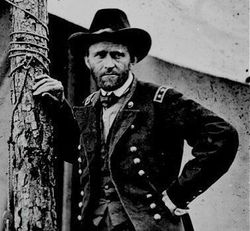I did not come to fully appreciate the gravity of the sacrifices made by our American ancestors – especially during wartime – until my time serving in the U.S. Air Force (1987-1996). For me, becoming a part of the U.S. Military and, then, standing in the long shadow of that particular swath of American history was a game-changer.
Upon joining the officer trainee ranks, my classmates and I were first instilled with discipline and a sense of duty; from there we were made to understand the mission – to provide National Security and sustain peace through strength. Finally, we learned, by way of American Military History, that we had taken on a mantle of tremendous obligation to uphold the standards of peace and the American way that our predecessors – from George Washington and forward – had given all to create and sustain.
My first tour of duty was as a Missile Launch Officer, Minuteman III ICBM system at F.E. Warren Air Force Base, in Cheyenne, Wyoming. Yes, I was one of those subterranean guys with his hands on the keys. While I could write a book about this experience, I’ll just say here that, while on that tour from 1987-1991, the Berlin Wall came down and the Cold War ended. It was an invigorating time to be on that team during that point in history. We were literally on the “front line” of the Cold War, deep underground in those missile launch control centers. Our 40 years of vigilance had prevailed. Peace through strength. I still feel an immense amount of honor and pride in having the privilege of being a part of the solution at that time in the American experience.
In 1992, I had the opportunity to attend Squadron Officer School (SOS) on Maxwell Air Force in Montgomery, Alabama. Maxwell is the home of Air University – an Air Force campus for professional military education. SOS was a seven week multi-discipline course and team building experience. One of the programs of study was military history. For that course, we were required to select a "Warrior-Hero" from U.S. History, research that individual, and then present our findings.
I chose General Ulysses S. Grant. I guess I was curious about his story – I couldn’t believe that a purported alcoholic and laggard (in his early military experience) would be capable of taking command of the entire U.S. military machine, defeat Robert E. Lee, and then serve two terms as President of the United States. There just had to be more to the story.

The more facts I gathered and the more I learned about General Grant, the more I respected his accomplishments. Accomplishments he made in spite of the adversity of the times and of his personal situation. Since then, I consider US Grant one of my heroes. He also served as a “gateway personality” that led me to study more characters of the American Civil War.
Indeed, there are numerous fascinatingly complex personalities that emanate from both sides of the conflict. Generals Buford & Longstreet, for example, I greatly and equally admire. To me, they represent the moral bookends at the Battle of Gettysburg. Other American giants toiled on the fields of Gettysburg: Robert E. Lee, Joshua Chamberlain, George Meade, JEB Stuart, John Reynolds, Winfield Hancock, George Pickett, and John Bell Hood…to name a few. But none of those struck as personal of a chord with me more so than Longstreet & Buford.
In fact, the first time I visited Gettysburg, we approached from the west and wound up coming straight down Route 30/Chambersburg Road (a.k.a., the Cashtown Road) into town. The kids needed a restroom break and we stopped at a little rest area that turned out to be the Guide Station. Directly across the Cashtown Road stand the statues of both Brigadier General John Buford and Major General John Reynolds. I realized that we had inadvertently started our journey to Gettysburg exactly where the battle itself had begun. When the kids were ready, we went across to see the monuments. I was overwhelmed standing at that place - I could feel the gravity of the thousands of souls who flooded into Gettysburg in July of 1863. I felt something immeasurable and indescribable - a mix of respect, honor, humility, and reverence. It was just one of those unique moments in life where it all came into focus and I realized how much bigger all of it is than me.
At that moment - somewhere in my subconscious - the seed for The FOG was planted. I also decided, from that experience, that the Song Cycle would start there, at dawn on July 1st, 1863, with General Buford studying the horizon up the Cashtown Road.
